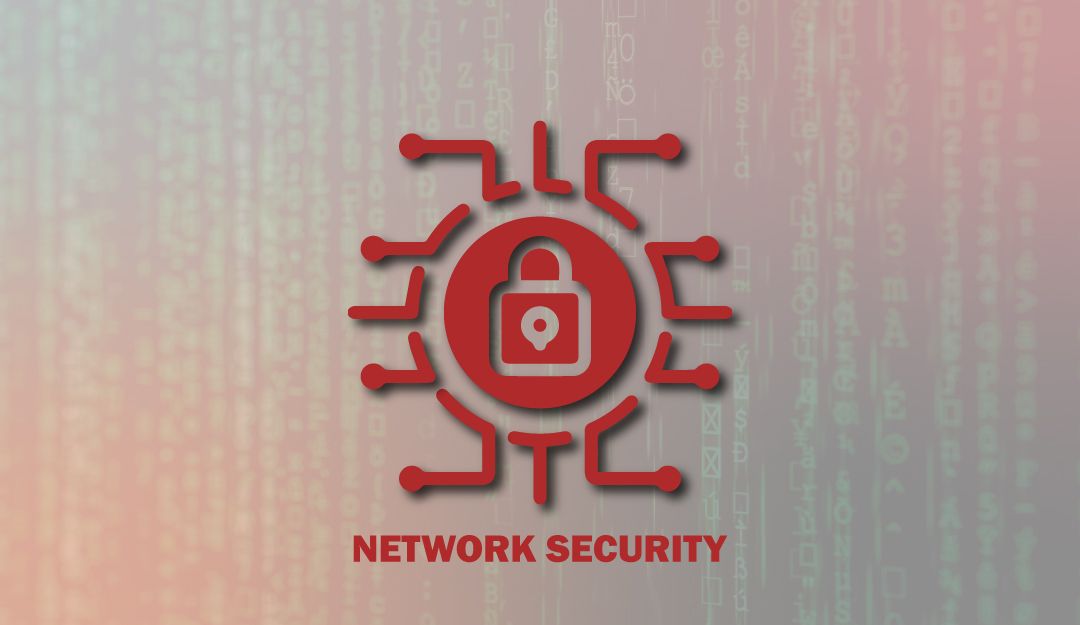5 Ways to Defend Against the Most Common Network Security Threats
Discover the 5 essential steps to protect your network from the most common security threats. Learn how to strengthen your business security and defend against cyber attacks with these expert-recommended defense tactics. Keep your data safe and secure with these proven techniques.

Network security is an essential aspect of modern businesses that must not be ignored. With the increasing number of cyber attacks and data breaches, it's crucial to take the necessary steps to protect sensitive information and maintain the integrity of your network.
In this blog post, we will explore the five most common network security threats and provide you with the information you need to defend against them. Whether you're a business owner, IT professional, or simply someone who wants to protect their sensitive information, this blog post will provide you with the knowledge and tools you need to keep your network secure. So, let's dive in and learn how to defend against the most common network security threats.
Understanding the Most Common type of Network Security Threats
Threats to network security come in many forms, including viruses, malware, phishing scams, and hacking attacks. Each of these threats poses a different risk to businesses and must be taken seriously.
These threats can have serious consequences, including the loss of sensitive information, disruption to business operations, and even financial loss. It's important for businesses to stay informed about the latest network security threats and take steps to prevent them from affecting their network.
Staying informed about new threats is essential for businesses to maintain the security of their network. Regularly checking security news, attending industry conferences, and following security experts can help you stay up-to-date on the latest network security threats.
The most common types of Network Security Threats that businesses encounter are:
Malware: Malware is malicious software that can cause harm to your network and steal sensitive information. Types of malware include viruses, Trojans, ransomware, and spyware.
Phishing Scams: Phishing scams are fraudulent attempts to obtain sensitive information by posing as a trustworthy entity. These scams typically come in the form of emails, phone calls, or text messages.
Unsecured Wi-Fi Networks: Unsecured Wi-Fi networks are a common way for cyber criminals to gain access to sensitive information. They can easily intercept unencrypted data transmitted over public Wi-Fi networks.
Outdated Software and Hardware: Outdated software and hardware can contain vulnerabilities that can be exploited by cyber criminals. Regularly updating your software and hardware is critical in maintaining the security of your network.
Insider Threats: Insider threats refer to individuals who have authorized access to a network and use their privileges for malicious purposes. These can include employees, contractors, or business partners. Insiders can easily steal sensitive information or cause harm to your network.
How to Defend Against Network Attacks
Defending against network security threats can seem overwhelming, but there are effective ways to protect your network. One of the best practices for network security defense is to implement a comprehensive network security defense solution that includes firewall protection. By using firewalls, you can control incoming and outgoing network traffic and prevent unauthorized access to your network.
In addition to implementing a comprehensive network security defense solution, there are other best practices that you can follow to keep your network secure. These include regularly updating your software, educating your employees on cybersecurity best practices, and regularly backing up your data. Here are some network security defense strategies you can implement to protect against data breaches and hacking.
Implement Strong Password Management Practices
Strong passwords are critical to the security of your network. Passwords that are easily guessable or weak can put your network at risk.
To create strong passwords, you should use a combination of letters, numbers, and special characters, and avoid using easily guessable information such as your name or birthdate. You should also regularly change your passwords and use different passwords for different accounts.
It's also essential to educate your employees on the importance of strong password management practices. Encourage them to create strong passwords and to avoid writing down or sharing passwords with others.
Keep Your Software and Hardware Up-to-Date
Software and hardware updates are essential for maintaining the security of your network. These updates often include security patches that address known vulnerabilities in your systems.
By keeping all software and hardware up-to-date, you can reduce the risk of your network being affected by cyber attacks. Automated update systems can help you ensure that all software and hardware is updated regularly.
To keep your software and hardware up-to-date, regularly check for updates and install them as soon as they become available. You should also test software updates in a controlled environment before installing them in your production environment.
Invest in a Reputable Security Solution
Security solutions such as firewalls, intrusion detection systems, and antivirus software can help you defend against network security threats.
When choosing a security solution, it's important to choose a reputable product that has been tested and proven to be effective. You should also consider the features and cost of different solutions to determine which one is right for your business.
Investing in a reputable security solution can help you maintain the security of your network and prevent cyber criminals from gaining access to your sensitive information.
Educate Your Team on Network Security Best Practices
Educating your employees on network security best practices is critical to maintaining the security of your network. Employees should be aware of the dangers of network security threats and the steps they can take to prevent them.
Providing training and resources on network security best practices can help educate your employees. You should also establish security policies and procedures that employees must follow, and make sure they understand the consequences of non-compliance.
Monitor Your Network Regularly
Monitoring your network regularly is crucial for identifying and responding to security incidents in a timely manner. By keeping track of all security events and incidents, you can gain valuable insights into your network security posture and identify patterns that could indicate a larger security issue.
Here are a few steps you can follow to monitor your network regularly:
- Install Network Monitoring Software: Implement a network monitoring software that can detect unusual activity and send alerts when potential security incidents occur. This software can also provide real-time monitoring of your network and its security posture.
- Regularly Review Log Files: Regularly review log files from your network devices, including firewalls, routers, and servers, to detect any unusual activity or potential security incidents.
- Conduct Regular Security Audits: Conduct regular security audits to assess the current security posture of your network and identify potential vulnerabilities. This can be done in-house or by hiring a third-party security consultant.
- Respond Promptly to Security Incidents: When a security incident occurs, respond promptly by taking the necessary steps to contain and resolve the issue. This may include isolating the affected devices, conducting a forensic investigation, and implementing countermeasures to prevent similar incidents from happening in the future.
By regularly monitoring your network, you can improve your overall security posture and quickly respond to any security incidents, minimizing the potential damage and impact to your organization.
In conclusion, network security threats are a real and present danger to modern businesses. It's essential to take the necessary steps to defend against these threats and maintain the security of your network. By understanding the most common threats, implementing strong password management practices, keeping your software and hardware up-to-date, investing in a reputable security solution, and educating your team on network security best practices, you can prevent cyber criminals from gaining access to your sensitive information and protect your business from potential harm. Remember, cyber security is a never-ending process and it's important to stay vigilant and proactive in defending against network security threats.
In addition to these five ways to defend against network security threats, businesses can also improve their network security with the help of OM Networks. OM Networks offers a range of security solutions and services designed to help businesses protect their networks and sensitive information. By taking advantage of OM Networks' expertise and cutting-edge technology, businesses can stay ahead of the curve in terms of network security and be well-equipped to defend against the latest cyber threats.
Act now to improve your network security. OM Networks will give you peace of mind, knowing that your network is in expert hands and that your sensitive information is protected from harm. Don't wait until it's too late - Contact OM Networks today!




Comments ()